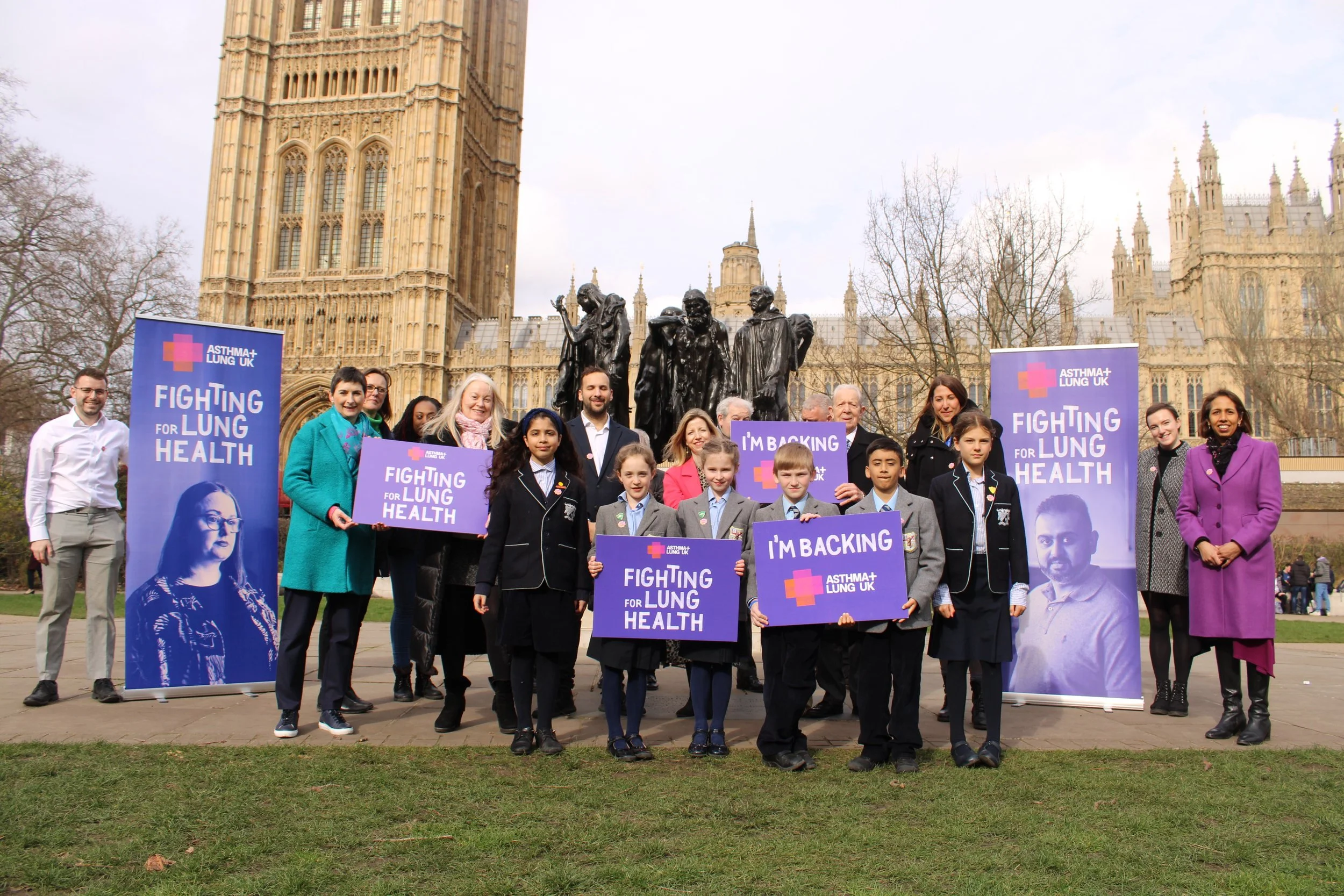Our new research strategy: reducing respiratory morbidity and mortality
Dr Samantha Walker tells us about Asthma + Lung UK’s mission to reduce respiratory morbidity and mortality by 20% over the next 5 years through a big focus on research and innovation.
Despite significant efforts to understand the lungs and lung health, respiratory outcomes in the UK have continued to decline over the last 15 years, and it remains the third leading cause of death, affecting 1 in 5 people and costing the UK £11 billion each year.
As part of our new strategy, we are committed to driving an increased investment in respiratory research and innovation to transform respiratory health outcomes and make the UK the best place in the world to do respiratory science.
An increase of £100 million per year would bring public funding for respiratory research and innovation (R&I) in line with the proportionate impact of respiratory disease on the nation’s health (to 6% of health research spend; from £47m to £150m). £100m in additional R&I funding could transform the UK’s ability to:
find new drugs to treat and potentially cure conditions like COPD and asthma
develop cutting edge diagnostic tools to get people on the right treatment earlier and
harness 21st century technologies to ensure people can simply, easily and effectively manage their symptoms.
Making the UK the best place in the world to do respiratory science
Accelerating research and innovation in respiratory disease would provide a catalyst for progress across many of the Government’s ambitions to improve economic activity and reducing regional inequalities while cementing the UK’s position as a science superpower. Realising the ambition set out in the Life Sciences Vision will require long-term commitment to strengthen the infrastructure to bring respiratory R&I into the 21st century, matched with funding to cement the talent pipeline, both of which are key to attracting large-scale industry investment.
We have developed an ambitious strategy that calls for a complete transformation in respiratory research and innovation through a focus on the four greatest challenges in respiratory disease – prevention, diagnosis, treatment, and self-management. This strategy has been informed by conversations with people with respiratory diseases, academia, pharmaceutical companies and policymakers.
We intend to drive external investment in these four key areas that deliver on long-term goal
Challenge 1 - Prevention
Respiratory diseases are poorly understood, and existing data is poorly connected, which reduces our ability to stratify risk and inform population health management
This lack of data, in turn undermines our capacity to perform research, understand the long-term progression of disease and generate new hypotheses for diagnosis, treatment, management and prevention
Failing to take advantage of the NHS’ datasets limits our attractiveness for R&D investment by industry
GOAL: make the UK the best place to do respiratory research and innovation by leveraging its unique data assets within the NHS and combining datasets across diseases and sectors.
Challenge 2 - Diagnosis
Respiratory diagnosis is complex, slow, inaccurate and relies on invasive and/or aerosol-generating tests which are prohibited in our post-covid world because of disease transmission risk. Most diagnoses rely on clinical judgement rather than objective tests which make them subjective and time-consuming.
Millions of people are thought to have undiagnosed COPD and asthma is routinely mis-diagnosed. Other life-threatening conditions are diagnosed late and with poor prognosis.
GOAL: develop new biomarkers that can accurately differentiate between different respiratory diseases, to make sure people get the right treatment as early as possible to prevent disease progression and premature disability and death.
Challenge 3 - Treatment
The respiratory pipeline has stalled, with few new drugs in the past 20 years that can improve outcomes for the majority of people with respiratory disease. High costs and risks prevent private investment.
The drugs available are ineffective in huge proportions of the clinical population, with up to 50% of people with asthma responding poorly to steroids, the cornerstone of asthma treatment.
GOAL: open up the market for the development of new therapeutic targets for drug development to reduce morbidity and mortality and make the UK the best place for large-scale trials of respiratory therapeutics.
Challenge 4 – Self-management
The UK has one of the worst asthma death rates in Europe, but two thirds of these deaths are preventable through better treatment adherence and management
Patients are not currently being equipped with the tools they need to understand their condition, remain adherent to their treatments and develop other healthy behaviours
Vast majority of existing digital tools for self-management are not fit for purpose – current NHS infrastructure does not support or encourage the development of consumer (patient)-focused products that could be transformative.
GOAL: open up the market for the development of new therapeutic targets for drug development to reduce morbidity and mortality and make the UK the best place for large-scale trials of respiratory therapeutics.
How we will achieve this
We will lead the way by investing our own funding in the best science and brightest minds to find new solutions to the challenges in respiratory diagnosis, treatment and management. By 2027, we will expand our research and innovation programme so we’re investing £5 million every year. Funding competitions will be based on patient and scientific unmet need with a different theme each year. We will also continue to invest in our Respiratory Insights service for researchers and innovators, which puts patient insight and the patient voice at the centre to ensure that new interventions and new products meet the needs of the patient population they’re intended to help. We will continue to play our part in brokering and supporting new research collaborations and will use the insights we gain to better understand, define and prioritise patient unmet needs and to support respiratory R&I in the UK and beyond.
We’re looking forward to working with people with lung disease, researchers and innovators to deliver this ambitious programme of work over the coming years and will report progress with you through our media and social media channels.
We empower people with lung conditions to make changes that can be transformative.
Please donate now to help make sure people with lung conditions can live well this year.








